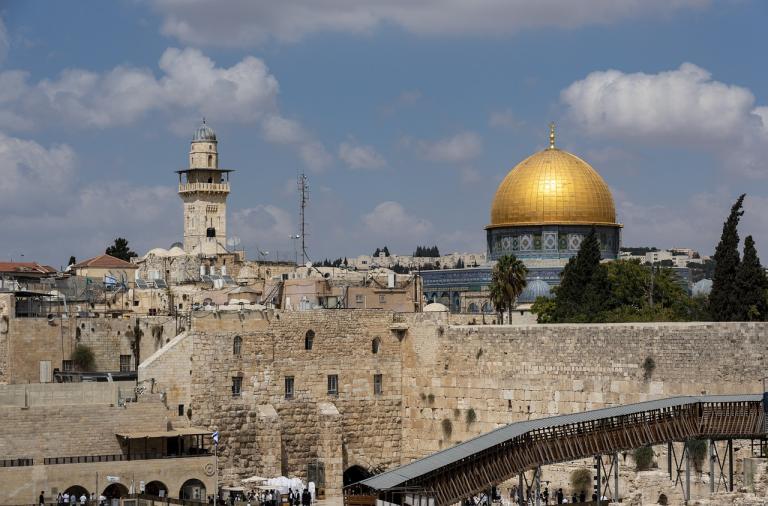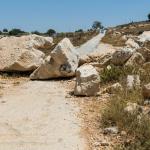
“The West Bank is unlivable.” These are the words of Palestinian Christian Pastor Munther Isaac.
While the world’s focus shifts from the utter destruction of Gaza to the increasing violence in Lebanon, the radicals within the Israeli government and the settler community have seized the opportunity to take more and more control in the West Bank.
Has evangelical rhetoric only made matters worse?
In the days, weeks, and now months following October 7, it became evidently clear that Evangelical Christians largely sided with Israel and promoted various versions of the pro-Israel narrative. Among them was Christianity Today (CT).
Within the first few weeks following the terror attack of October 7, Russell Moore, the editor-in-chief of CT, published two articles. In these articles, Moore was quick to support Israel and its right to defend itself.
In his second article, Moore seemingly doubled down on criticism that he received for his unequivocal support of Israel and asserted that any attempt to defend the Palestinians was a “moral failure.” (See his article, “Bothsideism About Hamas is a moral failure. Here is my response to his first post).
Then, over the next few months, CT began releasing episodes for a podcast series (The Promised Land). As I noted in my response to the podcast’s first three episodes, I was intrigued by the series. After all, I had enjoyed an earlier series of podcasts that CT had produced on “The Rise and Fall of Mars Hill,” and I was expecting something similar in quality.
Unfortunately, these podcasts were more than disappointing. In fact, I concluded, as one of my posts states, “Sorry Christianity Today, You Are Only Making Things Worse.”
Since the time I wrote those posts, CT released three more episodes. Unfortunately, these final episodes only served to further the dangerous propaganda that not only fuels violence against the Palestinians but ultimately endangers the people of Israel.
The most dangerous man in the Middle East
In episode 5, podcast host Mike Cosper interviews two Israelis. He begins with a conversation with Yehuda Glick, whom the Jerusalem Post declared the most dangerous man in the Middle East in 2017. Nonetheless, Cosper introduces him with, “It’s hard not to like him. He’s charming, he’s funny.” He may well be, but Cosper reveals his opinion of this controversial and “dangerous” man.
What makes Glick such a radical is his belief that, as a Jew, he has the right to pray on the Temple Mount. Glick asserts that this is a human rights issue. Glick asks why any religion should be forbidden from their sacred space. This may seem like a reasonable question—which is what Cosper wants the listener to believe.
There are, however, at least three serious problems that Cosper overlooks.
For one, the notion that everyone has the right to worship where they desire or believe it is sacred lacks justification. While one’s right to practice religion may be considered a fundamental human right, the notion that one has the right to practice one’s religion wherever one desires cannot be deemed a basic human right.
In addition, the place Glick deems “sacred space” is the Temple Mount, one of the most contested areas on earth. Allowing Jews to worship on the Temple Mount conflicts with the Islamic belief that the area is sacred to them. In other words, the question becomes, what happens when your human rights conflict with the rights of others?
For Glick, the answer is that his human rights take precedence. Cosper, of course, disregards the implications of Glick’s conviction.
Finally, Glick ignores the fact, as does Cosper, that the temple mount is not part of Israel. In other words, even if one has the right to worship at a place you deem sacred, there is the fact that his government does not possess this space. The question then becomes whether foreigners should be allowed to worship where they desire because it is a human right.
In other words, for Glick to practice his “human rights,” he must intrude—or even trample on—the “human rights” of others.
Furthermore, one might only imagine the potential conflict between Jews and Muslims trying to worship in the same space. Of course, we might hope for a world in which this can be a reality, but as long as Israel maintains its occupation of the West Bank, that world does not exist.
Hence, Glick may be “charming” and “funny,” but he is also dangerous and a threat to peace.
As the interview with Glick continues, Cosper introduces the issue of Israeli settlements. This part of the conversation serves as a segway to the second half of the episode when Cosper interviews an Israeli settler.
NB: Settlements are Israeli cities built on Palestinian lands (all Israeli settlements are located in the occupied West Bank) that Israeli citizens occupy. In order to construct these settlements, Israel must confiscate land from local Palestinians. Thus, not only does Israel maintain an oppressive occupation, usually justified based on “security” needs, but they continue to steal more and more Palestinian lands in order to move their own population. Some of these settlers are radical, ideological settlers who are convinced that the land belongs to them.
Referring to the Hamas incursion into Israel on October 7, Glick claims that without the “settlements,” the army wouldn’t be there.
For some reason, Glick seems to conflate “settlements” with the kibbutzim located just outside of Gaza. There are no settlements within Israel. By definition, a settlement is built within the Palestinian territories.
Glick went on to add that without those “settlements,” the Hamas fighters would have attacked major cities in Israel.
Consequently, Glick concludes, the “settlements are what protect Israel.”
Settlements protect Israel?
This is simply false and highly problematic.
Cosper, however, has not only failed to recognize the problem, he has used this “analysis” and established for his listeners that the settlements are not only good but they provide protection for Israel. This also suggests that Israel is in need of protection, which implies that the Palestinians are the problem.
In other words, instead of Israel’s aggressive and illegal (settlements are illegal by international law and have been consistently condemned; every US President has asked Israel to cease building settlements) activities being a source of the problem, the settlements are instead depicted as a necessary good for the protection of Israel.
In addition, associating settlements with the October 7 attack reinforces the conviction that the settlements are a necessary good.
But the terror attack of October 7 had nothing to do with settlements. Settlements are located only with the West Bank.
Cosper’s editing sets up the listener for his discussion with a settler in the second half of the episode.
Instead of this settler being a primary source of the conflict, he is now viewed as a necessary cog in the wheel of Israel’s security.
To be continued. . . .
I refuse to put these posts behind a paywall. This hinders the poor from accessing the information. But I can only continue these posts with the support of those of you who can afford to give. So, if you can afford to give $5, $10, $25, or $1 million/month, please do so. You can give a tax-deductible contribution by following this link.













